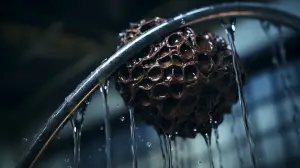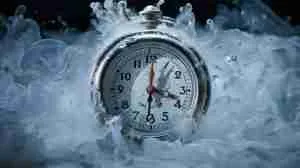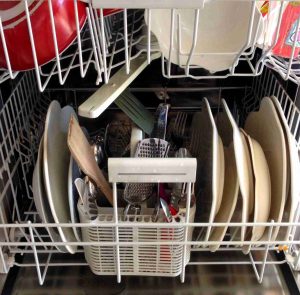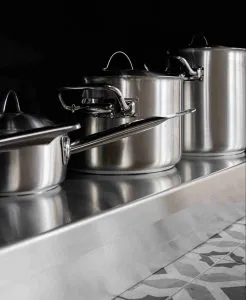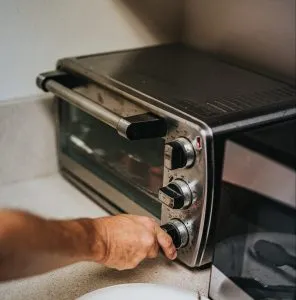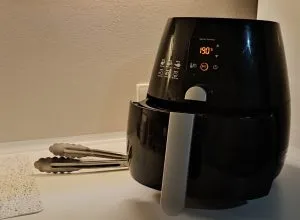Dealing with a conked-out dishwasher is always a headache, yet it’s something many homeowners face. Did you know that the average dishwasher has a lifespan of about 12 years? This article will provide you with proven tips and insights on how to maximize your machine’s longevity and ensure it serves you well for even longer.
Ready to learn more? Let’s dive in!
Contents
ToggleKey Takeaways
- The average lifespan of a dishwasher is around 12 years, but this can vary depending on factors such as quality and frequency of use.
- Proper maintenance, including regular cleaning, using the hot water setting, and loading dishes correctly, can help extend the life of your dishwasher.
- For those into home improvement, know that replacing hoses every two years and removing hard water buildup are crucial steps.
- Strange noises or malfunctions may indicate that your dishwasher needs to be replaced, but consider the cost of repairs versus the cost of a new dishwasher before making a decision.
How Long Dishwashers Last on Average

Dishwashers typically last an average of 12 years, but their longevity can be impacted by various factors such as quality and frequency of use.
If you’re limited on space and considering a different type of dishwasher, you might want to explore countertop dishwashers.
Average lifespan of 12 years
Your dishwasher usually lasts about 12 years. This is the common lifespan of most dishwashers in homes. But, it can change too. It may be less or even more than 12 years based on several things.
For example, how you use your dishwasher can make a big difference in its life.
Factors that affect lifespan
Dishwasher life can be changed by a few things. The first is the type of dishwasher you have. Brands like Bosch are known for making dishwashers that are better than others. They are more strong and will last longer.
How much you use your dishwasher is also key. If it’s used every day, it can wear out faster. Also, hard water can hurt your dishwasher over time.
The way you take care of your dishwasher matters too. A clean, well-kept machine works better and lasts longer!
Importance of frequency of use
Using your dishwasher too much can make it break faster. If used correctly, dishwashers might last as long as 12 years. But, if you use them a lot, they might only last for 6-8 years.
So, think about how often you run your dishwasher. Try not to do small loads all the time. Only run it when it’s full or almost full, whether it’s filled with pans, plates, or glasses. This will help to keep your dishwasher working for longer!
Ways to Keep Your Dishwasher Lasting Longer

Regular cleaning and maintenance are essential for extending the existence of your dishwasher. This includes wiping down the interior, cleaning the filter, and removing any debris or food particles that may have accumulated. If you’re curious about the weight and dimensions for installation or moving purposes, you can find out how much a typical dishwasher weighs.
Additionally, running a cycle with vinegar can help remove built-up mineral deposits and improve performance.
Regular cleaning and maintenance
To make your dishwasher last longer, it’s important to clean and maintain it regularly. This means taking the time to clear out any leftover food from the filters, cleaning the spray arms, and checking for any leaks.
Using dishwasher-friendly detergent and not overloading the appliance can also help extend its life. Hard water can be damaging, so using a water softener or descaling products can be beneficial.
By consistently keeping up with maintenance and using your dishwasher properly, you can significantly increase its lifespan and save money in the long run.
Using a hot water setting
Using the hot water setting on your dishwasher can have a big impact on extending its life. By increasing the water temperature, you can effectively remove stubborn food particles, grease, and bacteria from your dishes.
The heating element ensures that water gets hotter, helping to break down these contaminants more easily, resulting in cleaner dishes and a healthier dishwasher. Additionally, using hot water can also help to prevent mineral buildup inside your dishwasher, which can affect its performance over time.
So make sure to select the hot water setting when running your dishwasher for optimal results and to maximize its longevity.
Properly loading dishes
Another hint to be a happy user of your dishwasher is to properly load dishes. This means arranging them in a way that allows water and detergent to reach all surfaces for effective cleaning.
Avoid overcrowding the dishwasher as this can block the spray arms and prevent proper circulation of water. Make sure larger items are placed at the bottom with smaller items on top.
Also, ensure that dishes are not touching each other or blocking the detergent dispenser. By loading dishes correctly, you can prevent damage and maximize cleaning efficiency, ultimately prolonging the life of your dishwasher.
Replacing hoses and removing hard water buildup
To extend the lifespan of your dishwasher, it’s important to replace hoses and remove hard water buildup. Regularly replacing the rubber inlet hose every two years or switching to stainless steel can help prolong the life of your dishwasher.
This prevents any leaks or bursts that could lead to costly damage. Additionally, removing hard water buildup is crucial for maintaining the efficiency and lifespan of your dishwasher.
Mineral deposits from hard water can clog up the internal parts and reduce its performance over time. By regularly cleaning out limescale and residue, you can ensure that your dishwasher continues to work effectively for many years to come.
Signs It’s Time to Replace Your Dishwasher
If you start hearing strange noises coming from your dishwasher or notice frequent malfunctions, these can be signs that it may need to be replaced. When considering appliance repair, always weigh the cost of repairs against the cost of a new dishwasher.
Additionally, considering a home warranty for coverage could help with potential replacement costs.
Strange noises or malfunctions
If you hear strange noises or notice malfunctions, it’s time for a new dishwasher. It could mean that there is a problem with its internal components.
Similarly, if the door latch doesn’t work properly and prevents the dishwasher from starting, it might be time for a replacement. Water pooling around the base of the dishwasher or a strange odor could also signal a malfunction.
It’s important not to ignore these signs as they could indicate underlying issues that may worsen over time. Consider replacing your dishwasher if you notice any of these problems persistently occurring.
Cost of repairs vs. cost of replacement
Repairing a dishwasher can cost anywhere from $50 to $600, with the average repair cost being around $148. In many cases, it is more cost-effective to repair a dishwasher rather than replacing it, especially if it is within its average lifespan of 7-12 years.
However, if the repair cost is close to or exceeds the original cost of the dishwasher, or if the repairs are quite expensive and the dishwasher is older, it may be more practical to consider replacing it instead.
Repair technicians usually charge a diagnostic fee of $130 to $150 just for assessing the dishwasher and providing an estimate for repairs. The replacement cost for dishwashers can range from $600 to $1,700.
Considering a home warranty for coverage
If you’re considering a home warranty for coverage, it’s important to know that it may cover the repair or replacement of your dishwasher. Home warranties vary in what they cover and how much they pay for repairs or replacements.
Dishwashers typically last around 10 years, but having a home warranty can give you peace of mind if something goes wrong. Most plans include coverage for mechanical parts and essential components of your dishwasher.
So, if you want added protection for your dishwasher and don’t want to worry about unexpected repair costs, a home warranty might be worth considering.
Conclusion
In conclusion, the average life of dishwashers is typically around 12 years. However, this can vary depending on factors such as the quality of the dishwasher and how often it is used.
To prolong your dishwasher’s life, ensure you clean and maintain it regularly, use the hot water setting when possible, load dishes properly, and replace hoses or remove hard water buildup.
By taking these steps, you can help maximize the longevity of your dishwasher and get more use out of it in the long run.
FAQs
1. What can I do to help my dishwasher last longer?
To help extend the lifespan of your dishwasher, you should maintain regular maintenance and cleaning. This includes cleaning the filter, checking the spray arms, and ensuring the dishwasher is connected to a reliable power source.
2. How do I know if my old dishwasher needs to be replaced?
If your dishwasher is constantly breaking down and requiring frequent repairs, it might be a sign that it is time to consider replacing it. Additionally, if your dishwasher is more than 15 years old, it is likely not as energy efficient as newer models, and upgrading to a new dishwasher may save you money in the long run.
3. How can I care for my dishwasher?
To properly care for your dishwasher, make sure to scrape off excess food from dishes before loading, run it with a full load, use the appropriate detergent and rinse aid, and regularly clean and maintain the dishwasher as per the manufacturer’s guidelines.
4. How long should a dishwasher cycle take?
The length of a dishwasher cycle can vary depending on the make and model. Generally, a standard dishwasher cycle takes anywhere from 1-2 hours to complete.
5. Should I repair or replace my dishwasher?
This decision depends on various factors such as the age of your dishwasher, the cost of the repair, and the overall condition of the appliance. If the repair cost is high and your dishwasher is older, it might be more cost-effective to replace it with a newer, more energy-efficient model.
6. Why are my dishes still dirty after running them through the dishwasher?
There can be several reasons for this. It could be due to overloading the dishwasher, using too much or too little detergent, a clogged filter, or a faulty spray arm. Checking and addressing these issues should help improve the dishwasher’s performance.
7. Can a dishwasher damage my water heater?
A properly functioning dishwasher should not damage your water heater. However, it is important to ensure that your water heater is set at an appropriate temperature to prevent scalding and to maximize energy efficiency.









